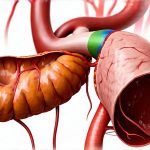The gastrointestinal (GI) tract is arguably one of the most resilient systems in the human body, constantly processing food, absorbing nutrients, and eliminating waste. However, even this robust system is vulnerable to external factors that can disrupt its delicate balance. Among the most pervasive of these factors are smoking and excessive alcohol consumption. While often discussed separately in terms of their impact on cardiovascular or respiratory health, the profound effects they have on digestive health are frequently underestimated. Understanding how these habits influence the GI tract – from the esophagus down to the intestines – is crucial for preventative care and maintaining overall wellbeing.
The consequences aren’t always immediate or dramatic, which can make it harder to recognize the damage being done. Often, symptoms manifest gradually over time, making it easy to attribute them to other causes like stress or dietary changes. However, chronic smoking and alcohol abuse create a cascade of physiological changes that compromise GI function, increasing the risk of various conditions ranging from heartburn and ulcers to more serious diseases like esophageal cancer and cirrhosis. This article explores these connections in detail, highlighting how lifestyle choices significantly impact this vital system and emphasizing the importance of informed decisions regarding health.
Smoking and its Impact on Gastrointestinal Health
Smoking isn’t merely a respiratory hazard; it’s a systemic toxin that disrupts numerous bodily functions, with significant consequences for the GI tract. The chemicals present in cigarette smoke – over 7,000 identified compounds including nicotine, carbon monoxide, and various carcinogens – directly irritate the digestive system and interfere with its normal processes. This irritation begins as soon as tobacco enters the body, impacting saliva production and esophageal function. Reduced saliva contributes to acid reflux, while the relaxation of the lower esophageal sphincter caused by nicotine allows stomach acid to flow back into the esophagus, leading to heartburn and increasing the risk of gastroesophageal reflux disease (GERD).
Beyond the esophagus, smoking compromises the stomach’s protective mechanisms. It reduces blood flow to the stomach lining, impairing its ability to heal and making it more susceptible to damage from stomach acid and other irritants. This increases the likelihood of developing peptic ulcers, both gastric and duodenal. Furthermore, smoking weakens the immune system, hindering the body’s natural defense against infections like Helicobacter pylori, a bacterium strongly linked to ulcer formation. The combination of these factors creates a dangerous cycle that perpetuates GI distress. It’s also worth noting that smokers often experience altered gut motility – changes in how food moves through the digestive tract – leading to constipation or diarrhea.
The effects aren’t limited to the upper GI tract either. Smoking has been linked to an increased risk of colorectal cancer, and it can exacerbate symptoms of inflammatory bowel diseases (IBD) like Crohn’s disease and ulcerative colitis. The carcinogenic compounds in smoke directly damage cells lining the colon, promoting tumor development. Additionally, smoking alters the gut microbiome – the complex community of microorganisms living in our digestive system – contributing to inflammation and disrupting overall digestive health. Quitting smoking is arguably one of the most impactful things a person can do for their GI wellbeing, as many of these effects are reversible with time.
Alcohol Consumption and its Effects on the Digestive System
Alcohol, while socially accepted and often integrated into cultural practices, poses substantial risks to gastrointestinal health, particularly with chronic or excessive consumption. Unlike smoking, where the damage is largely attributable to chemical toxins, alcohol’s impact stems from both direct toxicity and metabolic disruption within the GI tract. Alcohol irritates the lining of the esophagus, similar to smoking, but it also interferes with esophageal motility, increasing the risk of reflux and potentially leading to esophagitis – inflammation of the esophagus.
The stomach is particularly vulnerable to alcohol’s effects. It directly damages the gastric mucosa (stomach lining), making it more permeable and susceptible to acid erosion. Chronic alcohol abuse can lead to gastritis, an inflammation of the stomach lining, which causes symptoms like nausea, vomiting, and abdominal pain. Over time, this inflammation can progress to ulcers and even increase the risk of gastric cancer. Moreover, alcohol interferes with nutrient absorption in the small intestine, leading to deficiencies in essential vitamins and minerals. This is particularly true for fat-soluble vitamins (A, D, E, K) and B vitamins.
The liver, intrinsically linked to digestive function through bile production, bears the brunt of alcohol’s metabolic burden. Excessive alcohol consumption can lead to alcoholic hepatitis, inflammation of the liver, which if left untreated can progress to cirrhosis – irreversible scarring of the liver. A cirrhotic liver cannot effectively process toxins or produce essential enzymes for digestion, severely compromising GI health and overall wellbeing. It is important to remember that even moderate drinking, when combined with other risk factors, can contribute to digestive issues, and complete abstinence may be necessary for individuals with pre-existing conditions.
The Interplay Between Smoking and Alcohol
The combination of smoking and alcohol consumption creates a synergistic effect, amplifying the negative impact on GI health. Both habits independently increase acid production in the stomach and weaken the lower esophageal sphincter, making GERD more likely. When combined, this effect is dramatically increased, significantly raising the risk of esophageal cancer. Furthermore, both substances impair immune function, making individuals more susceptible to infections like H. pylori and exacerbating IBD symptoms.
Alcohol can also increase nicotine cravings, leading smokers to consume more cigarettes, creating a vicious cycle. This heightened exposure to toxins further damages the GI tract. The liver, already burdened by alcohol metabolism, faces additional stress from the toxins in cigarette smoke, accelerating the progression of alcoholic liver disease. From a physiological standpoint, both substances contribute to inflammation throughout the body, including the digestive system, leading to chronic discomfort and increasing the risk of developing various GI disorders.
It’s crucial to understand that quitting either habit – or ideally both – can significantly improve GI health. The body possesses remarkable healing capabilities, and reducing exposure to these toxins allows it to repair damaged tissues and restore normal function. Seeking support from healthcare professionals and utilizing cessation resources are essential steps towards regaining control of your digestive wellbeing.
Impact on the Gut Microbiome
The gut microbiome plays a crucial role in digestion, immunity, and overall health. Both smoking and alcohol consumption disrupt this delicate ecosystem. Smoking alters the composition of the gut microbiota, decreasing beneficial bacteria and increasing potentially harmful ones. This imbalance – known as dysbiosis – can lead to inflammation, impaired nutrient absorption, and increased susceptibility to infections.
Alcohol similarly disrupts the microbiome. It reduces microbial diversity, favoring species that thrive in an alcohol-rich environment while suppressing those essential for maintaining a healthy gut. This disruption can compromise the intestinal barrier function, allowing harmful substances to leak into the bloodstream – a condition known as “leaky gut.” A compromised gut barrier contributes to systemic inflammation and exacerbates various GI disorders. Restoring microbial balance through dietary changes (probiotics, prebiotics) and reducing or eliminating smoking and alcohol consumption is vital for improving gut health.
Managing and Mitigating the Effects
While prevention – avoiding smoking and excessive alcohol consumption – remains the most effective strategy, there are steps individuals can take to manage and mitigate the effects of these habits on GI health. – First, prioritize a balanced diet rich in fiber, fruits, and vegetables. Fiber aids digestion and promotes regular bowel movements, while fruits and vegetables provide essential vitamins and antioxidants that support gut health. – Second, stay adequately hydrated by drinking plenty of water throughout the day. Hydration helps to soften stool, reduce constipation, and facilitate nutrient absorption.
- Third, consider incorporating probiotic-rich foods like yogurt or kefir into your diet to help restore microbial balance. – Fourth, if you’re struggling to quit smoking or alcohol, seek professional help from a healthcare provider or support group. There are numerous resources available to assist with cessation and relapse prevention. Finally, regular checkups with your doctor can help identify early signs of GI problems and allow for timely intervention. Addressing these issues proactively is essential for preserving long-term digestive wellbeing. Boldly prioritizing your health through informed choices and proactive care will yield significant benefits for your gastrointestinal system and overall quality of life.


















